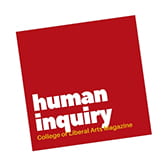In an age when the status of facts is challenged regularly, it has become even more important to check and cite sources. This is the case not only in news and politics but also in science, where research and experiments produce knowledge that we use in all aspects of society. Scott Mogull, associate professor in English, recently conducted a review of 15 research articles on citation accuracy in medical science. His review, “Accuracy of cited ‘facts’ in medical research articles: A review of study methodology and recalculation of quotation error rate” published in Plos One, reports that the percentage of some types of citation errors in science is not as high as once thought.
“Previous reviews estimated that approximately 20 to 25% of assertions cited from original research articles, or “facts,” are inaccurately quoted in the medical literature,” he writes. His review found that the rate of citation errors was only 14.5%. Of this smaller proportion of overall errors, most were citations that did not support the claims made or oversimplifications of the information being cited.
While Mogull’s work can help scientists rest assured that, for the most part, their citations are accurate, it also serves to caution scientists from misusing and oversimplifying information from other sources. “Despite estimating a lower rate of quotation errors than prior analyses…I believe that the rate of content quotation errors is still alarmingly high in the medical literature,” Mogull writes. It is important to read, quote, summarize and paraphrase sources accurately in order to advance scientific knowledge with confidence.
